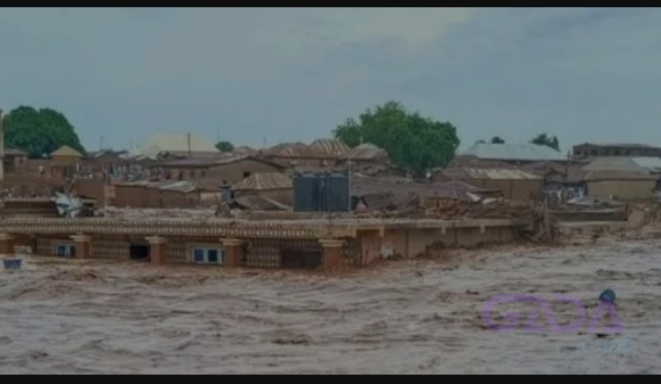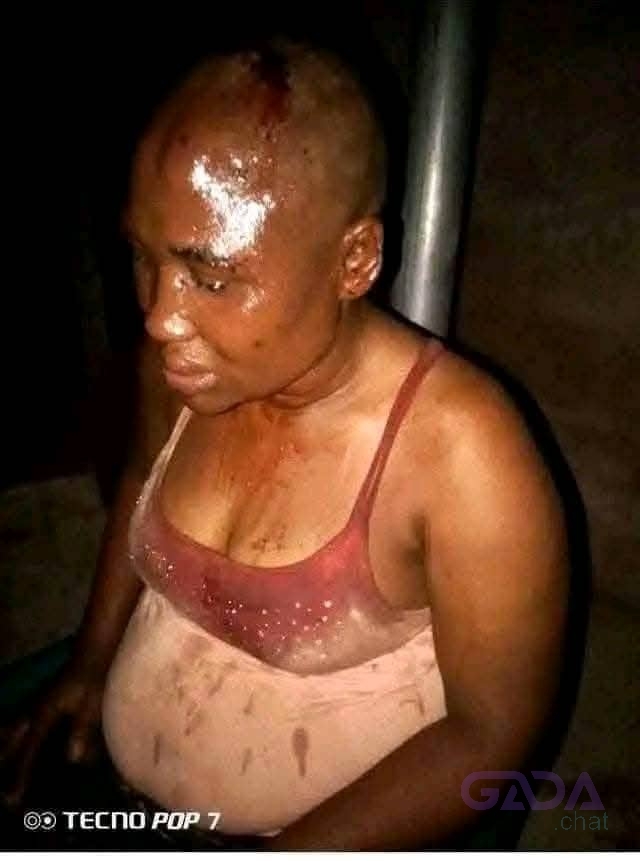Peter Obi Narrowly Escapes Plane crash in Lagos Airport
A major tragedy was narrowly avoided on Tuesday afternoon when an Air Peace flight (P47123) carrying over 100 passengers—including Labour Party’s 2023 presidential candidate, Mr. Peter Obi—encountered a terrifying landing experience at the Murtala Mohammed International Airport (Local Wing) in Lagos.
According to eyewitness reports, the flight, which departed Abuja at 12:59 PM (24 minutes behind schedule), ran into heavy turbulence while attempting to land in Lagos. Originally scheduled to touch down at 1:55 PM, the plane only managed to land at 2:25 PM after a frightening 30-minute ordeal in the air.
Passengers on board described the moment as “a near-death experience.” The plane reportedly struggled to stabilize and hovered dangerously above residential areas, forcing the pilot to make several failed attempts before finally landing.
"It was scary. The aircraft was going up and down like it had lost control. People were praying, crying, some even casting out demons," said one passenger.
Peter Obi, who was flying in economy class, was praised by many passengers for his calmness during the chaos. “He kept encouraging us to stay calm and have faith. It was comforting to see him composed even in the middle of fear,” another passenger shared.
In the first-class section, businessman Dr. Benson Onuwaje reportedly stood up to pray for the safety of everyone onboard. “He encouraged people to trust God. His words gave many of us hope,” said another survivor, Mathew Adekunle.
This incident has reignited concerns about aviation safety in Nigeria. Some passengers expressed fears that if the plane had crashed with a figure like Peter Obi on board, the consequences would have been grave for the nation.
Peter Obi had just concluded a visit to flood-affected communities in Northern Nigeria, where he donated N20 million in support. He returned to Abuja for a political engagement before flying to Lagos, where the incident occurred.
"We thank God for saving us," a relieved passenger said. "It could have been a different story today. But God protected us—including Peter Obi.”
As of now, the aviation authorities are yet to release an official statement. Investigations into the cause of the turbulence and the near-crash are ongoing.
A major tragedy was narrowly avoided on Tuesday afternoon when an Air Peace flight (P47123) carrying over 100 passengers—including Labour Party’s 2023 presidential candidate, Mr. Peter Obi—encountered a terrifying landing experience at the Murtala Mohammed International Airport (Local Wing) in Lagos.
According to eyewitness reports, the flight, which departed Abuja at 12:59 PM (24 minutes behind schedule), ran into heavy turbulence while attempting to land in Lagos. Originally scheduled to touch down at 1:55 PM, the plane only managed to land at 2:25 PM after a frightening 30-minute ordeal in the air.
Passengers on board described the moment as “a near-death experience.” The plane reportedly struggled to stabilize and hovered dangerously above residential areas, forcing the pilot to make several failed attempts before finally landing.
"It was scary. The aircraft was going up and down like it had lost control. People were praying, crying, some even casting out demons," said one passenger.
Peter Obi, who was flying in economy class, was praised by many passengers for his calmness during the chaos. “He kept encouraging us to stay calm and have faith. It was comforting to see him composed even in the middle of fear,” another passenger shared.
In the first-class section, businessman Dr. Benson Onuwaje reportedly stood up to pray for the safety of everyone onboard. “He encouraged people to trust God. His words gave many of us hope,” said another survivor, Mathew Adekunle.
This incident has reignited concerns about aviation safety in Nigeria. Some passengers expressed fears that if the plane had crashed with a figure like Peter Obi on board, the consequences would have been grave for the nation.
Peter Obi had just concluded a visit to flood-affected communities in Northern Nigeria, where he donated N20 million in support. He returned to Abuja for a political engagement before flying to Lagos, where the incident occurred.
"We thank God for saving us," a relieved passenger said. "It could have been a different story today. But God protected us—including Peter Obi.”
As of now, the aviation authorities are yet to release an official statement. Investigations into the cause of the turbulence and the near-crash are ongoing.
Peter Obi Narrowly Escapes Plane crash in Lagos Airport
A major tragedy was narrowly avoided on Tuesday afternoon when an Air Peace flight (P47123) carrying over 100 passengers—including Labour Party’s 2023 presidential candidate, Mr. Peter Obi—encountered a terrifying landing experience at the Murtala Mohammed International Airport (Local Wing) in Lagos.
According to eyewitness reports, the flight, which departed Abuja at 12:59 PM (24 minutes behind schedule), ran into heavy turbulence while attempting to land in Lagos. Originally scheduled to touch down at 1:55 PM, the plane only managed to land at 2:25 PM after a frightening 30-minute ordeal in the air.
Passengers on board described the moment as “a near-death experience.” The plane reportedly struggled to stabilize and hovered dangerously above residential areas, forcing the pilot to make several failed attempts before finally landing.
"It was scary. The aircraft was going up and down like it had lost control. People were praying, crying, some even casting out demons," said one passenger.
Peter Obi, who was flying in economy class, was praised by many passengers for his calmness during the chaos. “He kept encouraging us to stay calm and have faith. It was comforting to see him composed even in the middle of fear,” another passenger shared.
In the first-class section, businessman Dr. Benson Onuwaje reportedly stood up to pray for the safety of everyone onboard. “He encouraged people to trust God. His words gave many of us hope,” said another survivor, Mathew Adekunle.
This incident has reignited concerns about aviation safety in Nigeria. Some passengers expressed fears that if the plane had crashed with a figure like Peter Obi on board, the consequences would have been grave for the nation.
Peter Obi had just concluded a visit to flood-affected communities in Northern Nigeria, where he donated N20 million in support. He returned to Abuja for a political engagement before flying to Lagos, where the incident occurred.
"We thank God for saving us," a relieved passenger said. "It could have been a different story today. But God protected us—including Peter Obi.”
As of now, the aviation authorities are yet to release an official statement. Investigations into the cause of the turbulence and the near-crash are ongoing.












